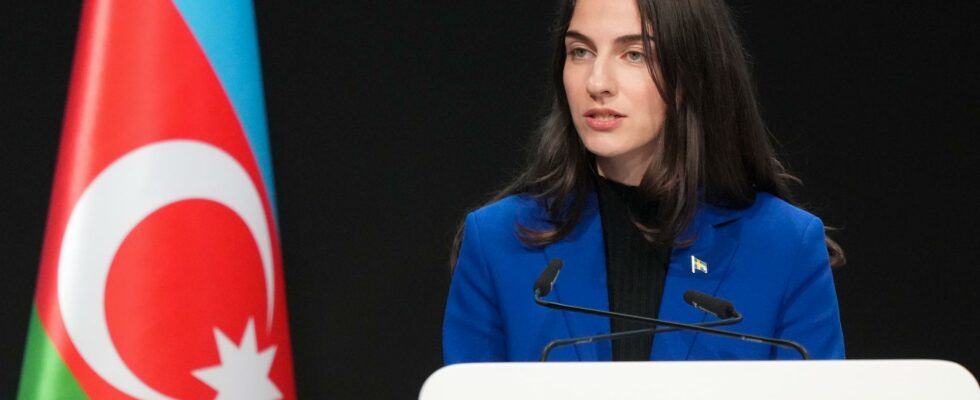unsaveSave
expand-left
full screen Sweden’s climate minister Romina Pourmokhtari (L) speaks during COP29 in Baku. The picture was taken on November 24. Photo: Sergei Grits
A significant part of the world’s countries do not take their responsibility for climate work, according to Sweden’s climate minister Romina Pourmokhtari (L), who expresses frustration after COP29 in Baku.
Before the climate meeting, poor countries had announced that rich nations should pay 1,300 billion dollars annually for climate action. When the agreement was fully negotiated, they landed in just under a quarter – 300 billion dollars.
– I understand them and their frustration, says climate minister Pourmokhtari to TT.
She emphasizes that one of the main problems is that the EU accounts for a disproportionately high part of the investments, while others have a lower level of ambition.
– It cannot be that countries such as Saudi Arabia, China, India and South Korea do not contribute to these goals. Now, for the first time, we have come up with a formulation about this, but it is a voluntary one, she says.
Pourmokhtari is particularly critical of Saudi Arabia, which has been accused of having a divisive effect on the talks.
“Trump has influenced”
She also sees potential uncertainties regarding funding because some countries will have new governments, for example in the United States.
– Now, for example, Biden has said yes, but then Trump comes and has to pay. There is a great risk that you have agreed to something you cannot live up to. Trump has influenced this meeting without being there, says Romina Pourmokhtari.
Regarding positive aspects of the agreement, the climate minister highlights that they managed to agree on the controversial Article 6 of the Paris Agreement, which establishes rules for trading emission rights to meet the climate goals.
Emphasizes cooperation
– Sweden has worked intensively together with, among others, Denmark, Finland, New Zealand and we are very happy that the meeting managed to reach a decision on that point so early.
According to Pourmokhtari, this issue plays a significant role in reaching the Paris Agreement’s goal of limiting global warming to 1.5 degrees compared to pre-industrial levels.
– It is exactly this kind of global cooperation that is required if you are serious about reducing emissions.
